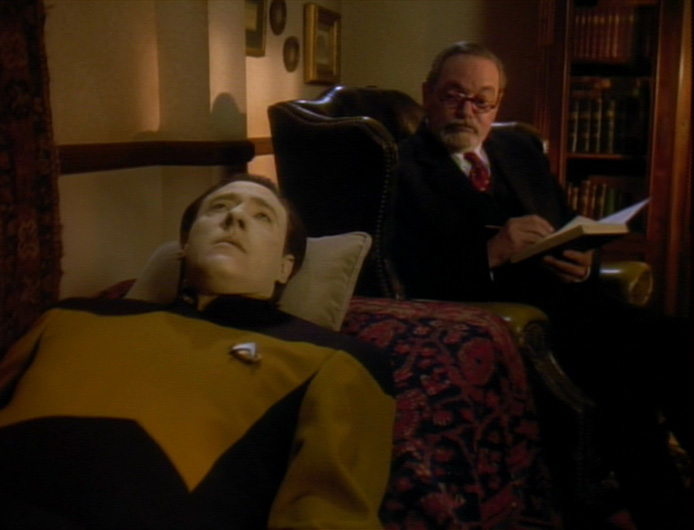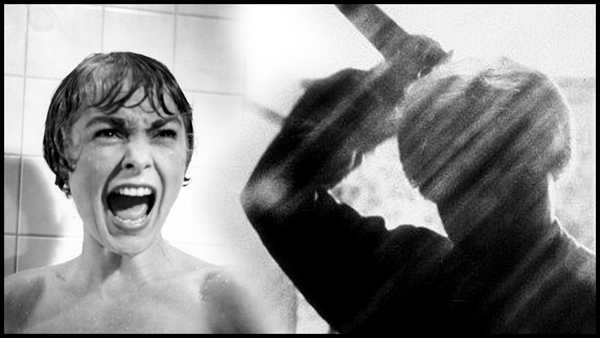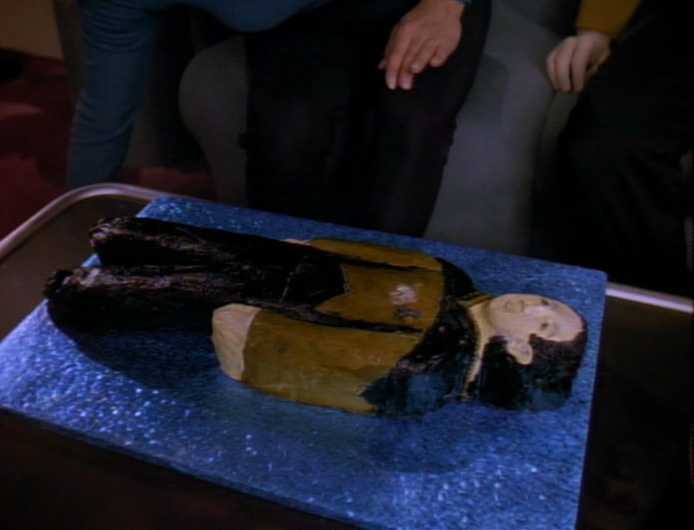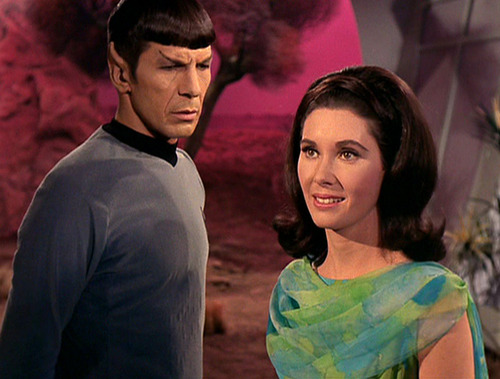In the immensely-creative “Phantasms,” Data activates his dream program and begins having nightmares, triggered by his subconscious perception of interphasic lifeforms feeding off the crew.
From a feminist perspective we need to look at Troi’s role in this episode – as counsellor, stabbing victim, and of course as a cellular peptide cake (with mint frosting).
“The premise of the show is Freudian,” says writer Brannon Braga. “Data’s subconscious mind…the way in which images manifest themselves in his dreams. It’s all Freudian mechanisms so at the same time that I was discrediting Freud in the episode, I was using all of his concepts to explain everything.” (Source: Captain’s Logs: The Unauthorized Complete Star Trek Voyages).
So Braga was trying to debunk Freud (or at least the pop psychology, caricatured version of him), through scenes like the one where Troi reminds Data “Sometimes a cigar is just a cigar.”

Troi gets a few scenes counselling Data in this episode – it’s Season 7 so she’s really come into her own as a character and we can see more than ever that she’s a valuable mental health professional on the ship.
And yet in spite of Braga’s views on Freud, the show ends up relying on Freudian concepts like how dream images reveal the workings of the subconscious mind.

Feminists have long taken issue with the way some of Freud’s early theories portray gender difference and inequality as biologically-rooted – emerging from the presence or lack of a penis. Braga himself pokes fun at the Freudian concept of the Oedipus complex:
Freud: The workmen symbolise the ever present id constantly working to destroy the ego. Now the image of Counsellor Troi, a female, is devoured by you, clearly indicating an unconscious desire to possess your own mother.
Data: But I do not have a mother.
Freud: Do not interrupt. The knife in its violent connotation suggests a certain feeling of sexual inadequacy.
Data: but I have no sexual desire.
Freud: Ach! Impotence on top of everything. It is all becoming clear to me now. There might be a paper in this.
But Data does cut a piece out of cake-Troi’s shoulder in his dream. I can’t help but be reminded of Margaret Atwood’s The Edible Woman, in which the protagonist, Marian, bakes a cake of herself to feed to her dominating fiancé. The message is similar: man wants to possess and consume woman, though Atwood is certainly not arguing that’s innate.
She [Marian] knelt, setting the platter on the coffee table in front of Peter.
“You’ve been trying to destroy me, haven’t you,” she said. “You’ve been trying to assimilate me. But I’ve made you a substitute, something you’ll like much better. This is what you really wanted all along, isn’t it? I’ll get you a fork.”

Outside of the dream, Data ends up coming after Troi with a knife (Freudian phallus stand-in), in a scene that feels reminiscent of the famous Psycho shower scene.

This similarity is not surprising since Hitchcock was also heavily influenced by Freudian psychoanalysis. The scene in Psycho where Norman Bates stabs Marion is commonly understood as a “symbolic rape.”

Even though there’s nowhere near as much blood as Psycho, it’s disturbing to see Data attack Troi like this. And we don’t see Troi experience any lingering trauma from the experience, but I can chalk this up to her superior psychological training.
And finally, Troi does get to turn the tables on Data at the end, by baking a cake that looks like him for them to eat.

Bechdel-Wallace Test: Pass. Crusher and Troi talk about the rash on Troi’s shoulder.











